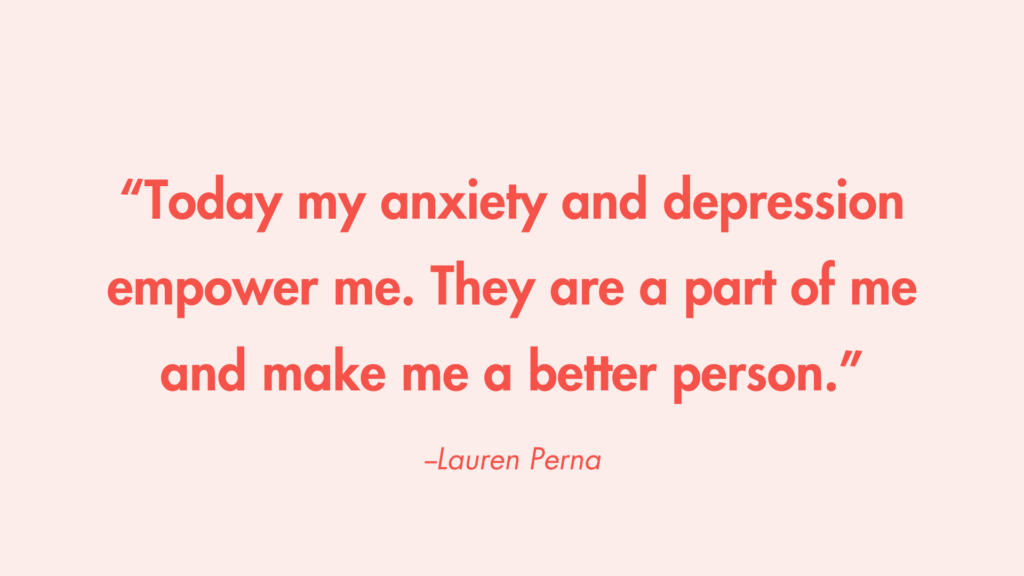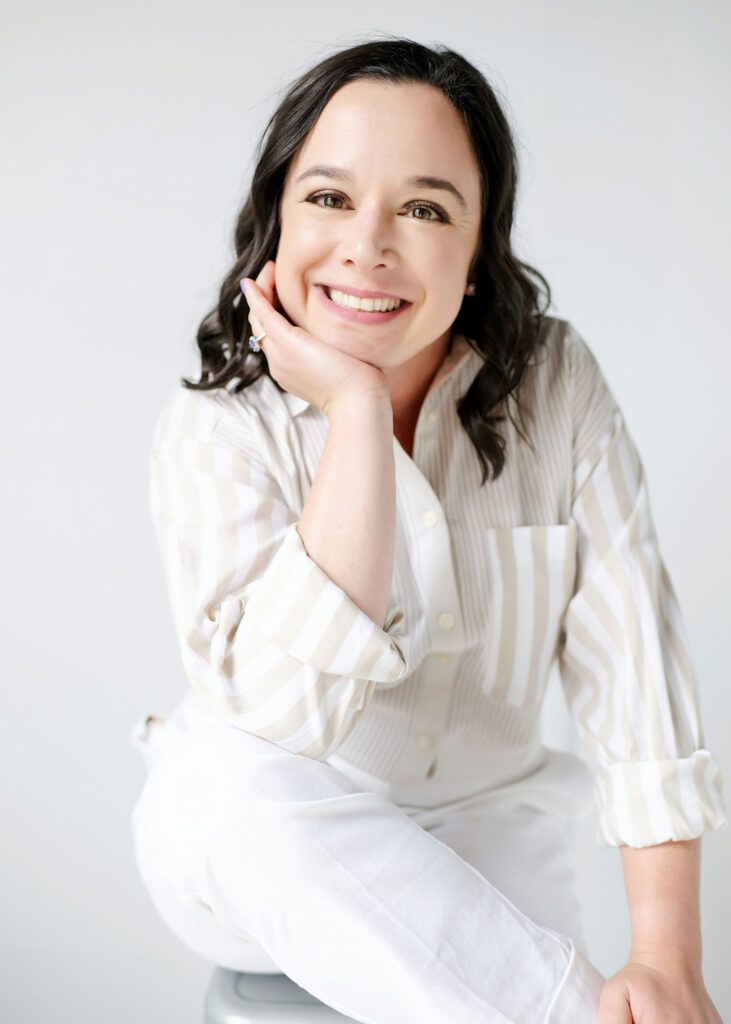You Are Not Your Diagnosis
June 25, 2024
Written by Lauren Elizabeth Perna, CEO & Lead Writer of Lauren Perna Communications
How My Mental Health Misdiagnosis Transformed My Outlook on Life
“I think we’re dealing with bipolar II here…”
My stomach dropped, and my face contorted. I could feel my cheeks getting warm and the sweat beading around my temples.
“It’s like a milder version of bipolar I,” the psychiatrist said softly as I stared out the window of her Upper East Side office.
I couldn’t believe what she was saying, but maybe I could. I was 21, and the last few months of my college career had been challenging, to put it lightly. Maybe this diagnosis was an answer, as much as I hated to think that way.
Related Article: 7 Tips for More Effective Networking with a Chronic Condition
The Diagnosis that Changed Everything
Change has always been really tough for me, so my forthcoming graduation was causing my brain to go haywire. My depression took a nosedive while my anxiety soared. At the same time, I was dealing with the ending of my first serious relationship, which led to the subsequent loss of several close friends who also happened to be roommates. That led to an eventual switch of living situations with only three months until graduation. I drowned my sorrows in all the things you would imagine a college senior would do.
The never-ending seesaw of anxiety and depression left me determined to find the perfect cocktail of meds, which is how I ended up in the psychiatrist’s fancy NYC office. Up until that point, finding the right meds had been challenging, so I was excited to get a different opinion, one outside of the college infirmary. I did not expect to receive an additional diagnosis, nor did I realize just how much it would change the trajectory of my life.
Living in a Permanent State of Shame
I always felt embarrassed by my depression and anxiety, but getting this additional diagnosis just set me over the edge. I began to live in a state of utter shame. The diagnosis impacted every aspect of how I saw myself and amplified every insecurity I ever experienced.
The stigma consumed me. Anytime someone made a joke about mental illness, I would cringe. My insides would twist in knots, and the shame would be palpable. I convinced myself that every mistake I made, friendship I lost, break-up I went through would not have been as awful or traumatic if I was just “normal.”
I hardly ever discussed it with anyone, not even my therapist, because if we mentioned the words, they would be true. I was truly ashamed to be me. Perhaps, that’s why I was a drinker. For a few hours, I could pretend that I was someone else. Unfortunately, what I failed to realize was that drinking only exacerbated how awful I felt about myself.
Related Article: Navigating Chronic Illness in the Workplace: Experts Weigh In
A New Clinician Leads to a New Lease on Life
I lived in silent shame for most of my adult life until one day in 2020. My psychiatrist at the time informed me she was leaving her practice, and I had to find a new clinician. So I found a psychiatric nurse practitioner (NP) taking on new clients. During one of our first sessions, she paused after I finished catching her up on my long history. Something was on her mind.
She took a deep breath in and said, “Lauren, I’m understanding the depression and the anxiety, but I am not sure I agree with the bipolar II diagnosis. Can you have your therapist call me?”
At this point, I assumed that this new clinician was just confused. I even blamed myself, thinking I had downplayed my symptoms. I immediately reached out to my long-time therapist to clear things up. But that’s not what happened.
“I tend to agree with this new clinician, Lauren. I haven’t noted any signs of bipolar II in years,” she explained.
While part of me was happy to hear this, another part was even more confused. Did I cure myself with the magic of meds and neuroplasticity? Is that even possible? Or what if I never even had bipolar II at all?
Once the NP officially determined that it was likely a misdiagnosis, my brain went into a permanent state of the little mind-blown emoji. I felt confused, angry, and dismayed.
It took some time for me to be OK with everything. I beat myself up for a while.
“I’ve spent the last 20 years letting this diagnosis consume me, and now you’re saying it’s inaccurate?” was the narrative my brain kept playing over and over again.
Eventually, the narrative got quieter, and I slowly began to see that I had let myself become my diagnosis. That was the only real regret I had.
Once my brain accepted that I wasn’t a loser for any diagnosis I did or didn’t have, I decided it was time to come clean. That was 3 years ago when I first told my story and began my journey of mental health advocacy.
The Lessons Learned from a Misdiagnosis

I don’t tell this story to encourage people to question their own diagnoses. Nor do I want to diminish or further stigmatize the experiences of people living with bipolar. I share it because there is an important lesson here: no person should ever feel synonymous with their illnesses.
So, here’s your reminder: You are not your diagnosis.
When I talk about this experience, people often want to know if I’m upset about the years of living with a misdiagnosis. It’s hard to say. So much has changed in the 20 years since the diagnosis. For one, social media has pulled back the curtain on the questionable decisions of college-age women, and secondly, mental health care has evolved.
To better understand this shift in mental health care, I asked Priya Hippolyte, a Mental Health Nurse Practitioner, to share her perspective: “Twenty years ago, if a patient described ups and downs or high-risk behaviors, the behavior was not looked at from a whole-person approach like many providers do now. When you look at it from that approach, providers can really rule out the difference between bipolar versus all the other factors and things going on at that time in the person’s life.”
The misdiagnosis revelation brought me to a point where I could separate myself from all my diagnoses. Had none of this happened, I probably never would’ve told my story and fully accepted myself.
Today my anxiety and depression empower me. They are a part of me and make me a better person. It took a lifetime to get there, but I finally see that I am not my diagnoses. They are simply one more thing that makes me who I am.

Lauren Perna is the CEO and Head Writer of Lauren Perna Communications, a mental health advocate, and an award-winning community leader. Bringing over 20 years of experience in writing, marketing, and relationship-building to her business, Lauren is an accomplished entrepreneur and writer known for turning even the most complex text into a compelling story.
